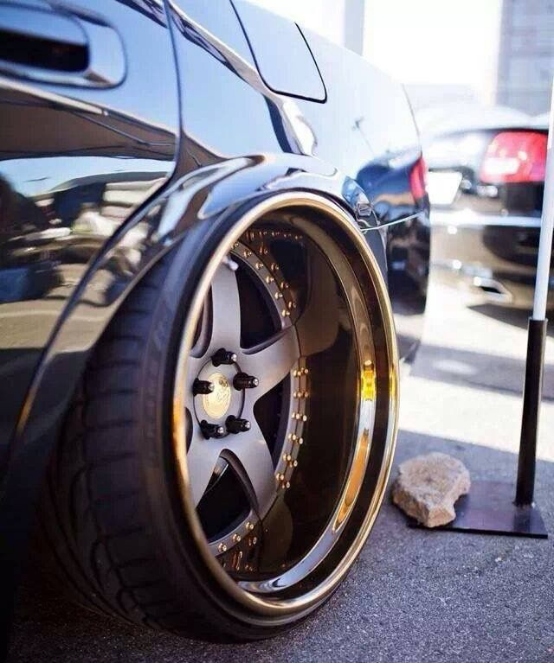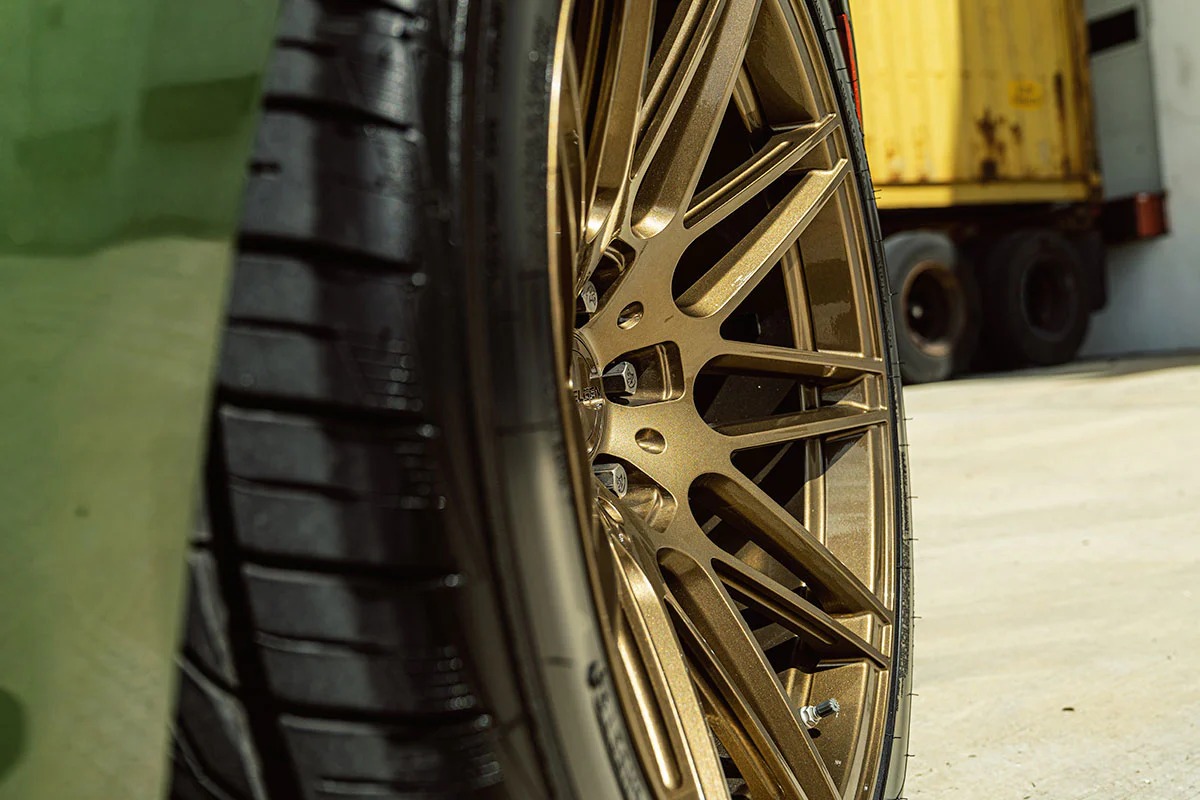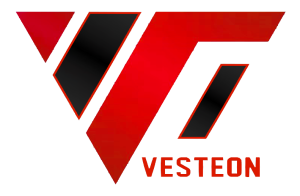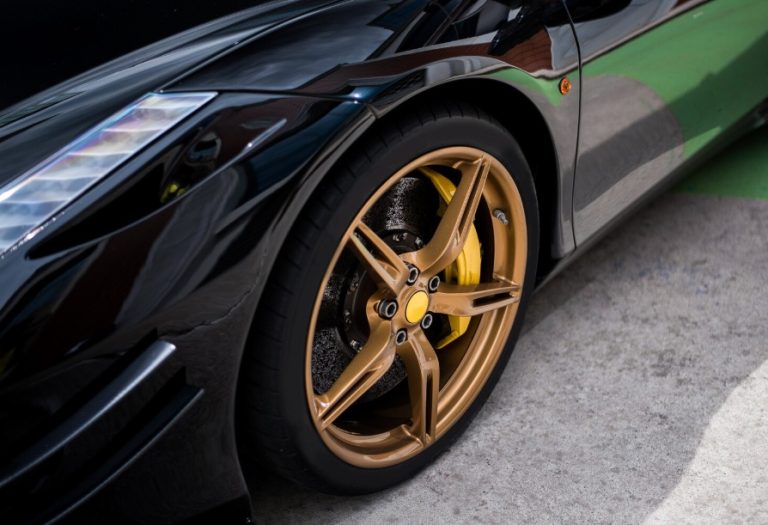Understanding Wheel Designs
When choosing aftermarket wheels for your car, it’s essential to comprehend the fundamental differences between concave and dish wheel designs to make a well-informed decision. These design differences have a significant impact on appearance and performance qualities.
What Are Concave Wheels
Concave wheels are curved where the spokes bend toward the center of the wheel, resembling a bowl when viewed from the side. It creates depth and visual gratification and renders the wheel more sporty and aggressive-looking. Vesteon offers several concave wheels, such as the Vesteon VT-005 Custom Forged Monoblock Concave Wheel and the Vesteon VT-006 Custom Forged Monoblock Multi-Spoke Concave Wheel. These wheels achieve maximum appearance effect and structural efficiency with the use of cutting-edge manufacturing methods.
What Are Dish Wheels
Deep dish wheels or dish wheels possess an extreme inward curve that provides a deep, bowl-shaped appearance. The outer rim is set further back than the wheel face, and thus, deep drama occurs. Vesteon is a brand of deep dish wheels that has wheels such as the Vesteon VT-011 Deep Dish 3-Piece Forged Wheel, Vesteon VT-012 Deep Dish 2-Piece Forged Wheel, and the Vesteon VT-017 Forged Deep Dish 2-Piece 5-Spoke Wheel.
Key Points of Difference Between the Two
The primary point of difference is the sophistication of manufacture and the degree of inward curvature. Concave wheels have a less extreme inward sweep, whereas dish wheels are more extreme in depth. Dish wheels may employ more advanced manufacturing methods, especially in multi-piece construction, which affect cost in addition to custom abilities.
Performance and Handling Comparison
How Wheel Design Affects Driving
Wheel design has a direct impact on vehicle dynamics, weight transfer, and handling response. Offset and backspacing determined by concave and dish profiles affect suspension geometry, steering response, and overall vehicle balance. Other dish styles could alter the scrub radius, which might have some effect on steering feel and tire wear patterns.

Rotary Forged vs Cast Forged Performance
Wheel performance is highly reliant on the process of production. Cast forged wheels have a process involving a casting process and subsequent forging to provide strength while reducing weight. Rotary forged wheels use a rotating method in production that compresses and stresses the metal to yield improved grain structure and strength-to-weight ratios. The process has a tendency to yield lighter wheels with higher durability than typical cast forged counterparts.
Vesteon Technology Used in Wheel Manufacture
Shandong Vesteon Automotive Parts (Group) Co., Ltd., professional in the production and sale of wheel designs, established in Aug. 2005 in Shandong province of China, covering an area of more than 100,000 square meters, with more than 700 employees, total investment of around 300 million RMB, with a production capacity of 3 million pieces per year. The company adopts advanced manufacturing technology to produce rotary forged and cast forged wheels with high standards.
Appearance and Style Effect
Visual Stylings of Concave Wheels
Concave wheels are associated with a hard, edge-cut look that is consumable with sports cars and high-performance vehicles. The concave sweep of the spokes creates shadow lines and depth that contribute to the visual enhancement of the wheel. Concave styling is most appropriately utilized on cars with wider fenders or high-performance body kits.

Visual Stylings of Dish Wheels
Deep dish wheels are retro in their appearance, with a classic feel that comes out of auto and specialty car culture. Deep, aggressive depth is a declaration as much as it comes to appearance, which is commensurate with the size and power of the wheel. Wheels like the Vesteon VT-018 Forged Deep Dish 3-Piece 5-Spoke Polished Wheel provide such a retro appearance through the quality of today’s production.
Equating Wheels to Vehicle Type
Wheel proportions, fender clearances, and styling language must dictate wheel selection. Concave styling is typically backed by performance automobiles and sports cars, but deep dish styling can be boosted in classic muscle vehicles and luxury automobiles.
Weight and Material Considerations
Weight Differences in Wheel Types
The manufacturing process impacts the weight of the wheel to a large extent. The least weight is obtained in rotary forged wheels with no strength compromise, followed by cast forged wheels. The forging process ensures that the metal structure is denser so that thinner sections of the wall can be employed without any strength compromise.
Benefits of Rotary Forged by Vesteon
We can manufacture a 10 to 30-inch range of wheels in different finishes and styles. Vesteon rotary forged wheels show a greater strength-to-weight ratio, heat dissipation, and durability compared to cast alternatives. The process results in wheels with better impact and fatigue load resistance.
Cast Forged Features by Vesteon
We also have world-class facilities and the most experienced R&D personnel. We have six highly efficient Taiwanese and German-made lines. These cast forged wheels are of high value with quality specifications that best fit daily use and moderate performance use.
Durability and Maintenance
Strength and Resistance of Each Design
Rotary forged wheels are stronger in impact and fatigue than their cast forged equivalents. Grain structure developed through rotary forging is stronger and more resistant to cracks. Both operations produce wheels that can satisfy the stringent demands of safety, but rotary forged does so with greater margins.
Maintenance Requirements for Both Types
The two wheels share the same maintenance practices, like frequent washing, frequent inspection for damage, and proper torque value on installation. We have a 3-year after-sales service. Proper care extends the lifespan of wheels regardless of the manufacturing process employed.
Choosing the Best Vesteon Wheel for Your Car
Things to Take into Consideration While Choosing
Vehicle weight, purpose, price, and personal taste will determine your choice. Our manufacturing always conforms to the ISO/TS quality management system, our products having passed American SFI certification testing, German TUV certification testing, and Japanese VIA certification testing. Load ratings, offset ratings, and brake clearance should be considered in making the final decision.
Best Use Cases for Each Design
Rotary forged wheels have dominance in performance use, track driving, and weight-saving situations. Cast forged wheels are reserved for street use, moderate performance applications, and price-driven applications. Vesteon’s wheel family, from the VT-008 Multi-Spoke 2-Piece Forged Wheel to the VT-016 Custom Deep Dish 2-Piece & 3-Piece Multi-Spoke Forged Wheel, provides options for performance, comfort, and cost.
FAQ
Q: What is the production process that offers more performance?
A: Rotary forged wheels tend to be better in performance due to improved, stronger-to-lighter weight and improved grain structure.
Q: Can cast forged wheels be used for high-performance driving?
A: High-quality cast forged wheels can be used for high-performance driving, but rotary forged wheels have an added margin of safety.
Q: How do I access the specification of the wheel suitable for my vehicle?
A: Along with the specification of wheels, the same as your car wheel, the wheels can fit your car. Please consult your vehicle handbook or an expert in wheels to confirm the fitment.
Q: What warranty coverage does Vesteon provide?
A: We provide 3-year after-sales service.

